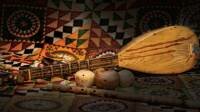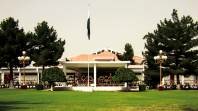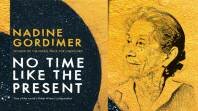When the Sketches crooned their first composition on Coke Studio, they instantly won over music lovers. This band from Jamshoro led by vocalist Saif Samejo sang the poetry of sufi saints from the land of the Indus. This was a unique idea and much appreciated especially within Sindh.
Now, Samejo has come up with a musical endeavor called the Lahooti sessions which are live music sessions that promote indigenous Sufi/folk music, musicians, and instruments among the masses, and especially the youth.
What gave you the idea of starting the Lahooti sessions?
I think music is an inspiration. Nothing can be a better idea than music, I am so in love with it. One pushing factor in favour of music for me is the influx of terrorism and intolerance in our society. It is not a healthy society anymore. Music is a wonderful form of resistance. Not only is it relaxing, it is a creative outlet. Secondly, it is important to realise that indigenous musicians and instruments are fading for commercial reasons, and lack of promotion and ownership. They do not earn enough money to run their lives and are not given the respect and honour that is their due as our ambassadors. So you can say that we wanted to give these ambassadors recognition especially amongst the youth, so that young people may feel their roots, know the real music of their land and feel encouraged to take their place within it. Young people in our country are very talented but they do not possess a platform for their talent, or they are unable to avail the limited music environment in the cities.
For us these sessions are an ‘aashram’, because the idea behind it was of a commune, a place where people of different ages, musicians, artists, youth, civil society and others gather to inspire, share ideas and spread love and peace through the medium of music.
What were your budget issues, if any?
Well, we don`t work on a very massive platform but we are working with what we have, and of course we are aiming big. As such, we do not have budget issues. Whatever we get from The Sketches’ performances, gigs, concerts and whatever I get from my salary we put into the Aashram. I am fond of traveling and usually save money for it but I have not been abroad for a year. Instead I have been travelling to different villages where we meet musicians, record their music, or call them home and record their music here. This way I get to travel as well as work for music. It’s all very interesting, really.
How do you come across these artists?
That is not difficult for me. I have been travelling since childhood to different villages in Sindh, to the different shrines of our sufi saints such as Sachal Sarmast, Shah Latif, Qalandar, Jhok Sharif, etc. So I have been exposed to Sufi music and to the folk musicians of Sindh. I have a spiritual connection with this music. It may be surprising to some people but the process of locating musicians and travelling to them, even waiting for them for long hours actually keeps us going.
Why do you feel it is important to promote folk music?
Because folk is root. It is our reality. It is what we actually are, not what is imposed upon us. Sindh, art, dance, music, and poetry are technically one. But, unfortunately the systematic invasion by terrorism has destroyed much of our roots, and has impacted our identity very badly.
What makes Pakistani folk stand out globally: instruments, vocals, or style?
Any country’s folk music is unique. It’s because folk music portrays an area’s identity. No two areas in the world can be exactly like each other, which makes our music unique. But our folk music is very much centered on our poetry which our musicians sing and perform and it is this poetry which is universal, because of its secular, liberal message of peace and love, couched in very simple language. And how can you deny the instruments themselves?
I have seen even those who did not understand the poetry rocking and swinging to the music.
What future do you see for your recording sessions and the artists?
I have never thought of that. I live in the present and I am enjoying the present. I enjoy the ambience in my Aashram where music dominates. We have no plans for the future, but I am sure it will bring some change to our folk music and musicians. I have a feeling their networking with other musicians in different cities across Pakistan will help them to be more creative. Some of the musicians inspired Coke Studio too in the last season and they were recorded. For me that’ a great feeling.
How many artists have you recorded so far?
We have recorded nearly a hundred musicians and about a hundred songs and instrumentals by these musicians.
Are you receiving support from people?
Yes friends and other people do support my project; they encourage me whenever they meet me, give me feedback on social media, email etc. In fact I even receive calls from national and international fans or people who know our music. I think no support can be bigger than the love of people.
The writer is a journalist based in Lahore.




















